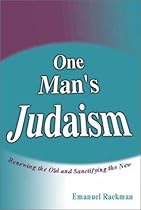 A study shows that teens don't seem to care much about the sin of bearing false witness by taking a religious oath to remain virgins and abstain from sex and then engaging in sex at the same level of activity of teens who made no such pledge. "Teenagers who pledge to remain virgins until marriage are just as likely to have premarital sex as those who do not promise abstinence," the report on the study says. The difference between the two groups? The religious teens who pledge abstinence are learning how to "retract their promises."
A study shows that teens don't seem to care much about the sin of bearing false witness by taking a religious oath to remain virgins and abstain from sex and then engaging in sex at the same level of activity of teens who made no such pledge. "Teenagers who pledge to remain virgins until marriage are just as likely to have premarital sex as those who do not promise abstinence," the report on the study says. The difference between the two groups? The religious teens who pledge abstinence are learning how to "retract their promises."According to the story, "Premarital Abstinence Pledges Ineffective, Study Finds," our government funds these 82% worthless plans with mega-millions. Here is a crucial excerpt:
...Rosenbaum analyzed data collected by the federal government's National Longitudinal Study of Adolescent Health, which gathered detailed information from a representative sample of about 11,000 students in grades seven through 12 in 1995, 1996 and 2001.The fundamentalist religious leaders will continue to support these failed abstinence programs even though, as we said, all they are accomplishing is training teens to lie about not having (often unprotected) sex - excuse me, I mean they, "retract their promises."
Although researchers have analyzed data from that survey before to examine abstinence education programs, the new study is the first to use a more stringent method to account for other factors that could influence the teens' behavior, such as their attitudes about sex before they took the pledge.
Rosenbaum focused on about 3,400 students who had not had sex or taken a virginity pledge in 1995. She compared 289 students who were 17 years old on average in 1996, when they took a virginity pledge, with 645 who did not take a pledge but were otherwise similar. She based that judgment on about 100 variables, including their attitudes and their parents' attitudes about sex and their perception of their friends' attitudes about sex and birth control.
"This study came about because somebody who decides to take a virginity pledge tends to be different from the average American teenager. The pledgers tend to be more religious. They tend to be more conservative. They tend to be less positive about sex. There are some striking differences," Rosenbaum said. "So comparing pledgers to all non-pledgers doesn't make a lot of sense."
By 2001, Rosenbaum found, 82 percent of those who had taken a pledge had retracted their promises, and there was no significant difference in the proportion of students in both groups who had engaged in any type of sexual activity, including giving or receiving oral sex, vaginal intercourse, the age at which they first had sex, or their number of sexual partners. More than half of both groups had engaged in various types of sexual activity, had an average of about three sexual partners and had had sex for the first time by age 21 even if they were unmarried.
"It seems that pledgers aren't really internalizing the pledge," Rosenbaum said. "Participating in a program doesn't appear to be motivating them to change their behavior. It seems like abstinence has to come from an individual conviction rather than participating in a program."
While there was no difference in the rate of sexually transmitted diseases in the two groups, the percentage of students who reported condom use was about 10 points lower for those who had taken the pledge, and they were about 6 percentage points less likely to use any form of contraception. For example, about 24 percent of those who had taken a pledge said they always used a condom, compared with about 34 percent of those who had not.
Rosenbaum attributed the difference to what youths learn about condoms in abstinence-focused programs...
 ISRAEL21c reports on the innovative iSkoot service that we have judged worthy of our Harris Epstein Award for great inventions.
ISRAEL21c reports on the innovative iSkoot service that we have judged worthy of our Harris Epstein Award for great inventions. Yet another "pastor problem" for Barak.
Yet another "pastor problem" for Barak.
 No, the Obama nominee for Interior Secretary, Colorado Senator Kenneth Lee Salazar, is not a Jew.
No, the Obama nominee for Interior Secretary, Colorado Senator Kenneth Lee Salazar, is not a Jew. Here is our review of the New Yorker essay,
Here is our review of the New Yorker essay,  In a brilliant article, Rebecca Spence tells us that Harvey Milk was indeed a Jew.
In a brilliant article, Rebecca Spence tells us that Harvey Milk was indeed a Jew.
 This rumor does not bode well for the health of Jewish education and, for that matter, of education in general.
This rumor does not bode well for the health of Jewish education and, for that matter, of education in general. I was just talking to a friend who sometimes goes to Yeshiva University on Sundays to study Torah with their great scholars and 50 other Jews in a regular weekly program.
I was just talking to a friend who sometimes goes to Yeshiva University on Sundays to study Torah with their great scholars and 50 other Jews in a regular weekly program. Our hearts go out to the indigent managers at Morgan Stanley who are subjected to diminished bonuses with strings attached.
Our hearts go out to the indigent managers at Morgan Stanley who are subjected to diminished bonuses with strings attached. It's free association day at the Independent.ie, where an unnamed journalist ruminates about the contaminated Irish pigs recall crisis and her Jewish boyfriend's sense of humor.
It's free association day at the Independent.ie, where an unnamed journalist ruminates about the contaminated Irish pigs recall crisis and her Jewish boyfriend's sense of humor.  In the middle of this profile the Times says, "It would be easy to dismiss Rabbi Froman, who peppers his speech with talk of miracles and references to mystical texts, as a maverick, an eccentric and a kook." Even after the "But" clause that follows in the essay (see it below), the assessment remains that this man is a major fuzzball.
In the middle of this profile the Times says, "It would be easy to dismiss Rabbi Froman, who peppers his speech with talk of miracles and references to mystical texts, as a maverick, an eccentric and a kook." Even after the "But" clause that follows in the essay (see it below), the assessment remains that this man is a major fuzzball. No, General Eric K. Shinseki is not a Jew.
No, General Eric K. Shinseki is not a Jew. 
 up-to-the-minute news, accurate reporting and research, hard-hitting, commentary and exclusive, mainstream-media-beating scoops-on the issues that matter to our readers most.
up-to-the-minute news, accurate reporting and research, hard-hitting, commentary and exclusive, mainstream-media-beating scoops-on the issues that matter to our readers most.
